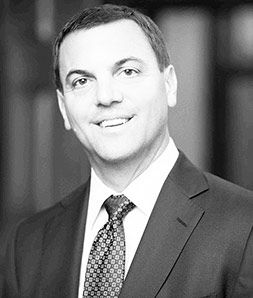A conservative wedge
 CREDIT: WINESINNIAGARA.COM
CREDIT: WINESINNIAGARA.COMOntario Progressive Conservative Party leader Tim Hudak creating a union wedge.
The dust hasn't even settled from the clash over transit funding for Toronto and Ontario Premier Kathleen Wynne is back in battle over public sector jobs. Wynne is accusing the leader of the Conservative opposition, Tim Hudak, of pursuing an anti-union agenda for the province's public sector. Hudak wants a review of public sector contracts that could be opened up to bidding by private sector companies, including transportation, employment training, and some penitentiary services.
The crux of the issue is the conservative ideal of free-market economics and competition. The Ontario PC Party believes that the government could save money by allowing private companies to deliver some of the services that currently fall under the provincial umbrella. The opposing view held by Premier Wynne is similarly rooted in party rhetoric, as a liberal government is traditionally more inclined to protect the public sector. The list of departments that could be privatized was short and relatively non-threatening, however should Hudak sense enough support he would almost certainly extend the policy to other services.
Historically, privatizing public services has led to mixed results, but there aren't any shining examples of privatization leading to radical cost reductions and service improvements. Outsourcing hospital services actually had disastrous results in April of 2013 when a private company was found to have provided hospitals with diluted chemotherapy medication for their cancer patients. While the Ontario PC Party isn't advocating for hospital service privatization, the chemo debacle illustrates the potential danger of removing government oversight.
There's some evidence to suggest that Ontario PC leader Hudak wants to make privatization a significant wedge issue for a forced provincial election he hopes is imminent. In a speech to the Toronto Region Board of Trade on February 21, Hudak announced that he would be backing off from his most controversial right-to-work policy ideas that had alienated fellow party members and union supporters province-wide. Most notably, Hudak will no longer seek to make union dues optional if he were to succeed Wynne. While claiming that the policy had been insufficient for the scope of the party's labour reforms, it's apparent that it just wasn't as palatable for the public as the Conservatives had hoped.
The scope of public sector privatization being pursued by the Ontario PC Party is minimal at best and is essentially a trial run. The policy announcement is an indicator of the kind of approach to government the PC party would take if elected. The announcement that Hudak won't be trying to make union dues optional is just the latest step in the process of crafting a platform that pleases party supporters while being only minimally objectionable to other voters. Wynne has fought to disassociate herself from the legacy of her predecessor, Dalton McGuinty, but she continues to beat the fiscal dead horse of renewable energy with all of his fervour. Unless Wynne is capable of introducing feasible, innovative solutions to the challenges Ontario is facing, voters might want to try something new.
Editorial opinions or comments expressed in this online edition of Interrobang newspaper reflect the views of the writer and are not those of the Interrobang or the Fanshawe Student Union. The Interrobang is published weekly by the Fanshawe Student Union at 1001 Fanshawe College Blvd., P.O. Box 7005, London, Ontario, N5Y 5R6 and distributed through the Fanshawe College community. Letters to the editor are welcome. All letters are subject to editing and should be emailed. All letters must be accompanied by contact information. Letters can also be submitted online by clicking here.













